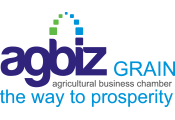
Articles & Insights
GOSA Cape workshop: SHEQ audit criteria needed

The development of audit criteria for health and safety – specifically regarding the grain storage industry and the growing problem of grain theft in the country – was a key topic at a recent workshop of the Cape branch of the Grain Handling Organisation of Southern Africa (GOSA), held at Aan de Doorns Wine Cellar near Worcester.
Jaco Joubert, health and safety manager at Overberg Agri, briefed GOSA Cape members on the importance of dedicated audit criteria for health and safety. He also shared updates on the progress made by Agbiz Grain in developing an industry- specific audit protocol tailored to the grain storage sector.
Grain storage a unique industry He explained that the grain storage industry is unique, with its own set of risks and mitigation strategies. As such, there is a need for an audit framework tailored specifically to this sector – one that outlines all the compliance requirements relevant to grain storage facilities.
“With a dedicated audit document, the grain storage industry can identify sector- specific challenges relating to safety, health, environment, and quality (SHEQ), explore practical solutions, establish a platform for continuous improvement, benchmark SHEQ performance across the industry, and offer peace of mind to executives, boards, investors, and insurers,” he said.
Joubert referred to the Agbiz Grain SHEQ seminar held in Pretoria in November last year, where a panel discussion focussed on developing an industry-specific SHEQ compliance framework while a process was also proposed for implementation. A SHEQ compliance working group was established, the audit scope (SHEQ) defined, and the biggest risks related to activities identified.
A SHEQ audit is a systematic assessment of an industry’s safety, health, environmental, and quality practices. The benefits include fewer accidents and injuries, improved regulatory compliance, greater efficiency and productivity, enhanced reputation, and ongoing performance improvement.
SHEQ audit in place
Joubert stated that the goal of the SHEQ working group is to finalise a draft independent audit protocol for the grain storage industry by the end of July. The protocol must be inclusive and applicable to both small and major role-players.
“The protocol will be tested as soon as possible through audits at selected sites. This will help determine whether the protocol is effective in all cases or if adjustments are needed.”
The audit process, which includes the frequency of audits and the use of internal and external audits as part of the audit programme, must still be finalised. “These audits will help us identify what works, what doesn’t, and what we as an industry can do collectively to address shortcomings.”
New standard set
“What I see emerging from this protocol is the establishment of a standard for the industry. Right now, everyone is still doing things their own way, but the results of the audit protocol will guide us forward. The protocol will also be adaptable as needs and legislation change.”
According to Joubert, the audit will afford each company the opportunity to assess itself: Where are you now, and where do you want to go? “There will likely be recognition for those who perform well.”
Not all elements in the audit protocol carry the same weight – some are more critical than others. The current proposal is to classify premises according to levels of compliance. The more a facility complies with the audit criteria, the higher its level will be.
By Hugo Lochner, Plaas Media
